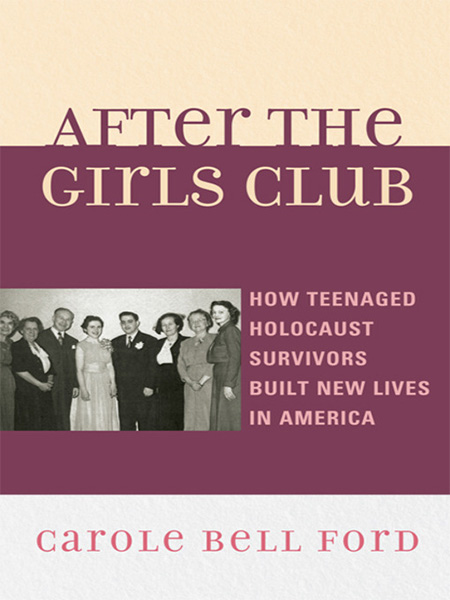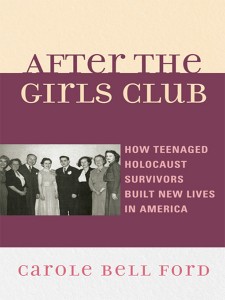

Local author and SUNY New Paltz alumna Carole Bell Ford read her latest book titled, “After the Girls Club: How Teenaged Holocaust Survivors Built New Lives in America,” at the Elting Memorial Library in New Paltz on Sunday, Nov. 6. After five years of work, the book was published in 2010 by Lexington Books.
During her career at Empire State College, Ford did a lot of informal work in history. She was always interested in the field, but her writing was sparked later on by a piece of literature she had read and wanted to respond to.
“I was responding to a book that I thought was from a very male perspective and so I wanted to give a woman’s perspective on some of the issues raised,” Ford said.
After writing this response, Ford realized how much she enjoyed writing and thought it was great to do prior to retirement.
Although Ford has no personal ties to the Holocaust, a professor at SUNY Albany who had read Ford’s first book (“The Girls: Jewish Women of Brownsville, Brooklyn, 1940-1995”) and was displaced during Adolf Hitler’s reign thought she would be the perfect candidate to write about the women at Girls Club, a topic she had wanted to explore for years.
“It was an accidental meeting. This professor had a number of friends, a group of women who were friends as teenagers. They met in high school and have remained friends over the years,” Ford said. “They were all orphans and Holocaust survivors; most were in ghettos and camps. Each had different stories.”
“After the Girls Club” is a historical account of a small group of orphaned, female Holocaust survivors who came to America as refugees and resided in the Girls Club, an orphanage and safe haven in Brooklyn, N.Y. The book follows the women from childhood to old age. It focuses on their lives in America after the horrific events which occurred in Europe during WWII.
“There are very surprisingly few, if any, works of literature on child survivors or a follow up on their lives,” Ford said. “There are dozens, maybe thousands of memoirs of people who survived the wars, but not after.”
The book is split into two parts, with the first half containing accounts and information about what led up to the war and its duration and the second half compiles the personal accounts of the women. The stories begin with the women’s arrival in the United States and how they begin to build their lives over time. Although it is not a wartime narrative, Ford had to include the women’s WWII experiences for historical context and to create a sense of where they had been.
Getting in touch with the women interviewed was not the most difficult part of putting the book together, as the professor provided contact information. Ford said the independently conducted interviews with the women were the longest aspect of the process.
“My previous books were oral history, so I had developed interviewing skills and techniques. I understood the pitfalls of it, and some you can’t avoid,” Ford said. “Although you can’t make generalizations, but in this case generally speaking, Holocaust survivors have not liked talking about their experiences with other people – especially non-Holocaust survivors. Most survivors do not want to go back there and have to relive extraordinarily painful experiences.”
Ford hopes her readers will understand that stereotypes of children of the Holocaust are not accurate. According to Ford, it was speculated that the young survivors would never be capable of leading normal lives due to their physical and mental problems resulting from war crimes.
“They were considered to be the lost generation, but they turned out to be resilient,” Ford said.
The most important thing Ford wants her audience to take from these accounts is, “these women built successful lives by the standards of the time period they lived in.”
Ford believes the book is easily accessible and caters to a wide audience, including academics, those interested in Holocaust, Women’s Studies and history as well as non-academics. The book is available at the Elting Library and via the SUNY New Paltz inter-library loan.
“This was the most difficult out of everything I have written, but my favorite part of the whole process was that I had the responsibility to be their voice. I felt that these women were so brave and had gone through so much,” Ford said. “After the book came out, one woman who had never spoken to her children about the holocaust, because she eventually broke down to me, felt she had to open up to her family. This woman’s daughter called and told me this. That was the most satisfying out of anything that has happened in this book from start to finish.”
